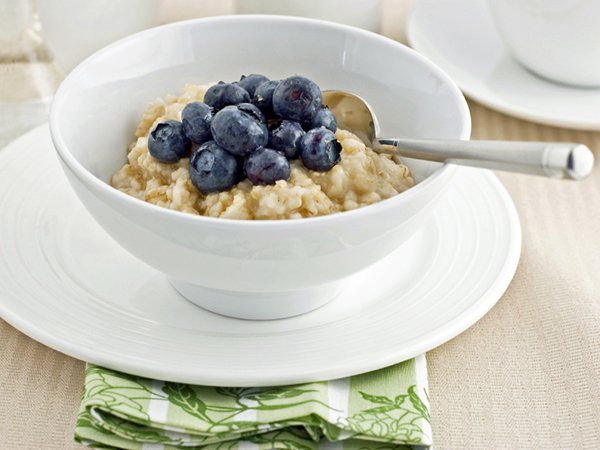Heading to the gym after work for a quick workout? Out for a morning walk with the dogs? Working out is good for physical and mental health. Although many individuals workout for weight loss or maintenance, exercising burns fewer calories than you might think. For example, you burn about 100 calories for every mile you walk or run. Yet, the average energy bar provides about 250 calories and a 16-ounce fruit smoothie has 350 to 400 calories, so it is easy to overdo it when you think you’re just preparing for your workout.
Here are some tips for fueling your workout without sabotaging the calorie-burning effort of exercise.
The Morning Workout
A low-intensity morning workout — such as a walk, bike ride, yoga or round of golf — requires very little fuel. Concentrate on hydration and a small carbohydrate-rich snack, such as 16 ounces of water and a mini-bagel or a 100-calorie granola bar. That will give you enough energy to compensate for an overnight fast without loading up on calories. After your workout, eat a smart breakfast of quality carbohydrates and protein. This can be a hard-cooked egg, a slice of whole-grain toast and 100-percent fruit juice, or oatmeal with berries and fat-free milk.
In the Evening
If you exercise after work, plan to eat lunch 3 to 4 hours before your workout. Good choices include a grilled chicken salad, a grilled cheese sandwich with a cup of tomato soup, or a turkey sub with baked chips. A healthy lunch will provide enough calories to sustain a late afternoon workout, but give yourself a little energy boost 15 to 30 minutes before your workout by eating a banana, orange slices or a handful of grapes, along with a cup of water. When it comes to hydration, water is a good choice for exercise lasting less than an hour, but consider a sports drink if you are exercising for more than an hour at a higher intensity. If you are working out for more than an hour in a hot, humid climate, be sure to stay hydrated with 3 to 8 ounces of a sports drink every 15 to 20 minutes.
Refueling
After a workout, rehydrate with water. If you are heading home and eating dinner within a couple of hours, there is no need for a post-workout snack. If your meal will be delayed, then recover with 6 to 8 ounces of fat-free chocolate milk, 6 ounces of low-fat Greek yogurt, or a stick of string cheese with a few whole-grain crackers.
Try not to fall into the cycle of skipping breakfast, eating a light lunch and, then, exercising after work with little fuel on board. With this scenario, you are more likely to overeat after your workout because you are so hungry from not eating enough during the day. Another mental trap is rewarding a good workout with high-calorie or fatty foods. Rewarding your workout with food and high-calorie fluids will undo your efforts in the gym; instead, treat yourself to a new pair of sneakers for a job well done.
Originally published at www.eatright.org


